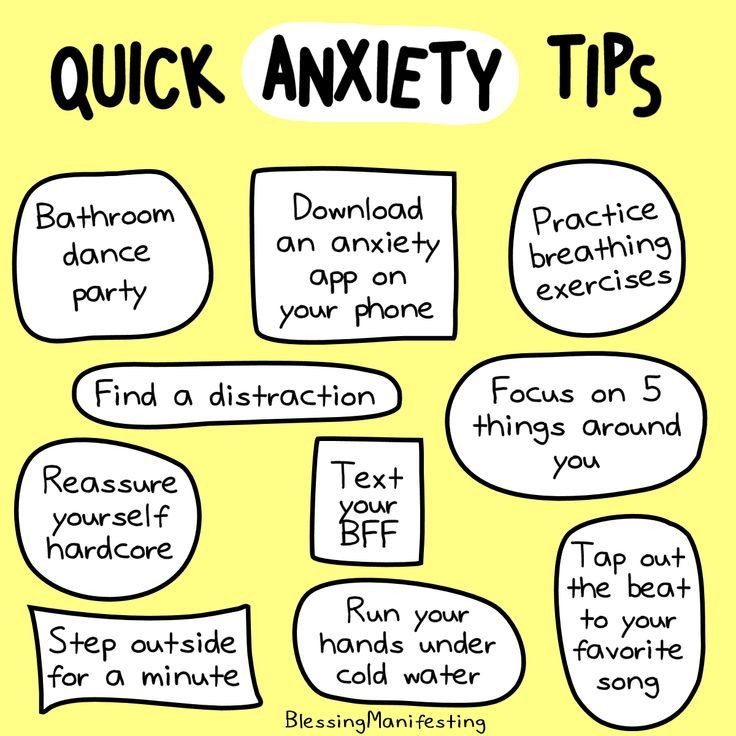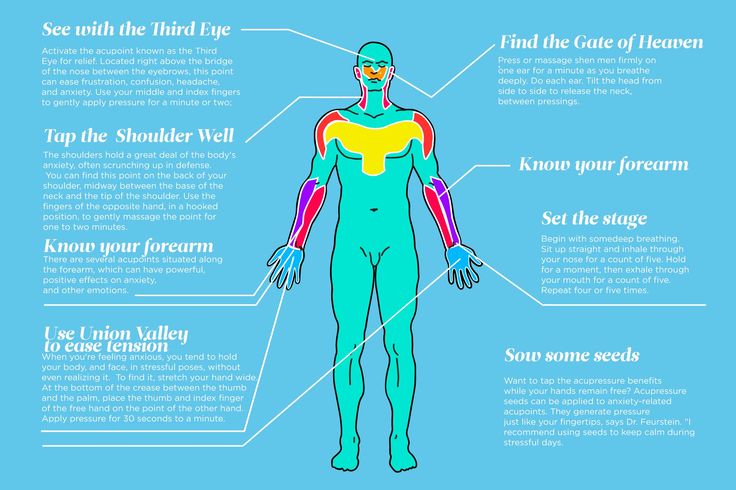Why do i always get cheated on
What Type of Person Gets Cheated on Most Often?
Will Your Partner Cheat On You?
Source: Photo by Mika Baumeister on Unsplash
It’s the ultimate betrayal: Cheating. Research on infidelity has explored many facets of the experience, including how often it happens, qualities in a relationship that may lead to cheating, and traits of those who are more likely to cheat (Fincham & May, 2017).
But, to this point, research has largely ignored the non-cheater—the person uninvolved in committing infidelity but gets cheated on. Though their partner’s unfaithful behavior certainly isn’t their fault, understanding as many potential factors related to cheating is important because the research is clear: Cheating harms relationships. The more we learn about contributing factors the better our chances of minimizing infidelity’s prevalence and impact.
In a just-published 2020 study, Meghna Mahambrey of the Ohio State University seeks to answer the question, “Who gets cheated on in relationships?” Specifically, she was curious about which aspects of a person’s personality may make them more susceptible to having their partner or spouse commit infidelity.
Study participants came from a large nationally representative sample with analyses focusing on 1,577 participants, 898 of whom were married, in middle/late adulthood, who completed a telephone interview and a self-report survey. Across the entire sample, 19% reported being cheated on at some point.
The researcher gathered information on personality by asking participants how well 26 different Big Five personality traits described them:
- Openness (e.g., adventurous, curious, intelligent).
- Conscientiousness (e.g., responsible, hardworking, organized).
- Extraversion (e.g., friendly, outgoing, talkative).
- Agreeableness (e.g., caring, softhearted, sympathetic).
- Neuroticism (e.g., moody, nervous, worrying).
To gauge cheating, they also listed a series of life experiences and asked participants to check any that applied, including “Spouse/partner engaged in (marital) infidelity.”
Findings
Obviously, a lot of things contribute to cheating in a relationship, beyond personality. In her models, the researcher accounted for factors such as age, education, gender, race/ethnicity, and religiosity. Even after statistically accounting for those (i.e., controlling for them), she found that across the entire sample, those who were less conscientious (i.e., more careless, less hard-working and organized) were more likely to have a partner cheat on them.
In her models, the researcher accounted for factors such as age, education, gender, race/ethnicity, and religiosity. Even after statistically accounting for those (i.e., controlling for them), she found that across the entire sample, those who were less conscientious (i.e., more careless, less hard-working and organized) were more likely to have a partner cheat on them.
When she did similar analyses on the subsample of married individuals, she found the same pattern for conscientiousness, but also found that people who were more agreeable (i.e., more warm and helpful) were more likely to have their spouse commit infidelity.
What These Results Mean
First, what it doesn’t mean: This isn’t justification to blame the victim. Finding a correlation between certain personality characteristics and a partner’s unfaithfulness does not show that you are to blame if you happen to be an agreeable or non-conscientious person. The cheating partner is the one who violated the relationship’s trust; it’s their fault.
Though being agreeable is generally a desirable trait, in the context of cheating it’s possible that having a more agreeable partner emboldened the cheater to feel that their transgression would be more easily forgiven. Having low conscientiousness could also cause problems: As the researcher explains, “Having an unreliable, immature, or lazy partner could increase stress and conflict when navigating day-to-day responsibilities such as paying bills, doing household chores, attending work events, honoring personal commitments, and so on.” None of this excuses cheating, but other research does show that when participants described their partner as low in conscientiousness and agreeableness, they reported lower marital satisfaction (Shackelford et al., 2008).
We also know that individuals who themselves are low in conscientiousness and agreeableness are more likely to cheat (Schmitt, 2004). It is logical that those same traits also play a role in the uninvolved partner. People who get cheated on in a relationship also share qualities with people who are least likely to cheat in their relationship. That study found that people who were highly conscientious and agreeable, along with low openness tended not to commit infidelity (Apostolou & Panayiotou, 2019). Taken together, these studies show the importance of conscientiousness and agreeableness in relationship dynamics.
That study found that people who were highly conscientious and agreeable, along with low openness tended not to commit infidelity (Apostolou & Panayiotou, 2019). Taken together, these studies show the importance of conscientiousness and agreeableness in relationship dynamics.
It’s important to note that the present study’s results only apply to participants who knew their partner cheated; if anything, the overall cheating rate of 19% is likely an underestimate. We should also note that the type of infidelity was not specified, so the researchers relied on participants’ own definitio, which could include a range of behaviors from emotional infidelity to sexual intercourse.
Ultimately, while being more conscientious certainly can’t guarantee that your partner won’t cheat, exuding greater responsibility, self-discipline, and helpfulness can benefit your relationship.
Want to learn about the biology behind cheating? Click here.
To learn more, see my new book Stronger Than You Think: The 10 Blind Spots That Undermine Your Relationship. ..and How to See Past Them
..and How to See Past Them
You can also follow me on Twitter: @LewandowskiPhD
Facebook image: Andrey_Popov/Shutterstock
Women Who Get Cheated On – Getting Cheated On
If your man is a philanderer, it's probably not your fault. But if you've gotten hurt by a player more than once—or you know someone who has—you'll want to check out what top relationship experts say could be part of the reason.
1. You were "cheated on" by your father. If your dad abandoned the family, was abusive, or didn't pay much attention to you, it often triggers a cycle, notes Jeanette Raymond, PhD., a licensed psychologist in Los Angeles, CA. "You expect the same from every man." Dr. Raymond recalls one couple who was happy until he socializing more with his co-workers. She grew very possessive, and started checking his phone. Even when he was out with his brother, she assumed he was cheating. "She felt as if he didn't care about her, just like her father," says Dr. Raymond. Her partner eventually did cheat on her, he admitted, to make her back off. Women stuck in this cycle need to mourn the loss of what didn't happen as a child and let it go. "Try looking at the facts, not just your feelings," suggests Dr. Raymond."
"She felt as if he didn't care about her, just like her father," says Dr. Raymond. Her partner eventually did cheat on her, he admitted, to make her back off. Women stuck in this cycle need to mourn the loss of what didn't happen as a child and let it go. "Try looking at the facts, not just your feelings," suggests Dr. Raymond."
See Also: 9 Common Reasons Husbands Cheat on Their Wives
2. You mistake attraction for love. Attraction just happens. Love is something that builds over time and takes work. Sure, attraction can lead to love. But not always. "Female-to-male attraction works the same whether you're 16, 36 or 56," says Scot Conway, PhD, relationship coach and author of Emotional Genius. "A top attractive quality in a man is when he doesn't need your approval." Men who don't need a commitment tend to have extreme self-confidence. "If you understand that attraction is one thing and love is something else, and the first doesn't always lead to the second, you have a massive advantage," says Dr. Conway.
Conway.
3. You're attracted to the "wrong" guys. Women who get burned again and again are overlooking the good guys. "The classic friend zone is where many of the best partners end up," explains Dr. Conway. Why? Nice men can try too hard to impress you, which can be a turn-off. Sometimes what women want "is a bad guy they can change," explains Dr. Raymond. So have a two-date rule: Give a guy a fair shake before you dismiss him. How do you know you've found a man who could really be there for you? "You can tell him anything without feeling embarrassed or that you'll scare him off," shares Dr. Raymond. "And he accepts you the way you are."
4. You're not really into sex anymore. No getting around it: sex is really important to men. If you're just "going through the motions" and having sex you're not enjoying, he might feel rejected and consider cheating. "Think of outings when he clearly doesn't want to be there. After a while, you'd just as soon not go out. It's the same with sex," explains Dr. Conway. Try talking to him and telling him what you like and what feels good. "If you are not there to fulfill the needs of your partner, those needs don't just go away. If it is something you don't want someone else there for, you be there."
After a while, you'd just as soon not go out. It's the same with sex," explains Dr. Conway. Try talking to him and telling him what you like and what feels good. "If you are not there to fulfill the needs of your partner, those needs don't just go away. If it is something you don't want someone else there for, you be there."
5. You're your worst critic. If you're insecure about your body and often complain about it, he will start to see you through your eyes. Many of us do this more than we realize. "Do these jeans make me look fat? Do you think I'm gaining weight? I hate my cellulite. My boobs are getting droopy…You've got to stop!" says Laurel House, relationship expert and founder of ScrewingTheRules.com. "Let your guy view you as the gorgeous gem that you are. Act confidently. Embrace your body regardless of its shape and age."
See also: 10 Marriage-Saving Lessons from Couples Who Didn't Make It
6. You give up your independence. "Some women give themselves so completely to the relationship that their partners feel uncomfortable and 'bought'," observes Dr. Raymond. And the irony is that in trying so hard to bolster the relationship, you become less like the woman he was originally attracted to. If you lose yourself in a man—canceling plans to be with him, only listening to the music he likes, posting only pictures of the two of you on Facebook—the man can feel trapped. And when one feels trapped, the instinct is to get free. "And they do that by cheating, because it's an easy way out," explains Dr. Raymond.
You give up your independence. "Some women give themselves so completely to the relationship that their partners feel uncomfortable and 'bought'," observes Dr. Raymond. And the irony is that in trying so hard to bolster the relationship, you become less like the woman he was originally attracted to. If you lose yourself in a man—canceling plans to be with him, only listening to the music he likes, posting only pictures of the two of you on Facebook—the man can feel trapped. And when one feels trapped, the instinct is to get free. "And they do that by cheating, because it's an easy way out," explains Dr. Raymond.
7. You believe sweet talkers are sweet guys. Women who don't trust their gut when there are warning signs, are more apt to be cheated on. "I have a patient who is involved with a total jerk. But he wrote her a long letter, which she looked at as 'his putting into words what he couldn't say in person,'" says Jane Greer, PhD, New York-based relationship expert and author of How Could You Do This to Me? Learning to Trust After Betrayal. Women who are easy marks for cheaters tend to be moved by showy displays of affection. The guys quickly figure out that "those will suffice to keep them connected and take her attention away from what's actually going on," notes Dr. Greer. "Rather than taking him at his word, go by his behavior, because often that's the real him," she suggests.
Women who are easy marks for cheaters tend to be moved by showy displays of affection. The guys quickly figure out that "those will suffice to keep them connected and take her attention away from what's actually going on," notes Dr. Greer. "Rather than taking him at his word, go by his behavior, because often that's the real him," she suggests.
8. You're a Workaholic. If you're working extremely long hours, or are unavailable, he'll feel neglected, says Dr. Greer. If the circumstances can't be avoided, compensate during your downtime. Even if you only have one day a week free, use that day to prioritize your relationship. Make every Saturday night, say, a non-negotiable date to snuggle on the couch with a movie. Talking openly and frequently about when you might need to be unavailable and how long you expect it to go on is essential. If you don't, over time, he may act on the "abandonment" by cheating.
9. You don't take pride in your appearance. We know what you're thinking: Like he's Jared Leto? But hear us out. Not taking care of yourself at all sends your man a message: Leave me alone, says Carole Lieberman, MD, author of Bad Girls: Why Men Love Them & How Good Girls Can Learn Their Secrets. Guys can translate your lack of interest in feeling and looking your best as lack of interest in them, a blow to their self-esteem. That same "you're not worth it" message can be sent when boundaries disappear too. "Women who get cheated often started using the toilet, farting, and waxing their upper lip in front of him," adds House.
You don't take pride in your appearance. We know what you're thinking: Like he's Jared Leto? But hear us out. Not taking care of yourself at all sends your man a message: Leave me alone, says Carole Lieberman, MD, author of Bad Girls: Why Men Love Them & How Good Girls Can Learn Their Secrets. Guys can translate your lack of interest in feeling and looking your best as lack of interest in them, a blow to their self-esteem. That same "you're not worth it" message can be sent when boundaries disappear too. "Women who get cheated often started using the toilet, farting, and waxing their upper lip in front of him," adds House.
10. You put the kids first. Always. If you never give your husband first dibs on your time, he's going to wish he was with somebody who thought he was important. By first dibs, we mean, sticking to date night plans even though your daughter was just invited to a sleep-over, needs a ride and is having an "all my pajamas are ugly!" meltdown. "An assumption among women who are cheated on is that their relationship can wait until the kids are older and things 'get easier,'" notes Antoniette Coleman, Psychotherapist/Relationship Coach in McLean, VA. It can't. "Break this cycle by learning to be 'a good enough mom,'" urges Coleman. "Send store-bought cupcakes to the bake sale, volunteer at school once a month instead of once a week, let the kids have downtime instead of scheduling every moment of their day. You'll free up energy for yourself and your spouse."
"An assumption among women who are cheated on is that their relationship can wait until the kids are older and things 'get easier,'" notes Antoniette Coleman, Psychotherapist/Relationship Coach in McLean, VA. It can't. "Break this cycle by learning to be 'a good enough mom,'" urges Coleman. "Send store-bought cupcakes to the bake sale, volunteer at school once a month instead of once a week, let the kids have downtime instead of scheduling every moment of their day. You'll free up energy for yourself and your spouse."
6 reasons why people lie, even if they don't have to
121,664
Knowing Yourself A Man among People
Most people try to always tell the truth. Some lie more than others. But there are those who lie all the time. Pathological lying is not a clinical diagnosis, although it can be one of the symptoms of psychopathy and manic episodes.
But the vast majority of liars are mentally healthy people who think differently or lie under the influence of circumstances, explains David Lay, psychiatrist, doctor of clinical psychology. Why do they do it? nine0003
Why do they do it? nine0003
1. Lies make sense to them
Others do not understand why they lie even in small things. In fact, these little things are important for those who lie. They have a different perception of the world and a different system of values. What matters to them is what is not important to most.
2. When they tell the truth, they feel like they are losing control of the situation.
Sometimes such people lie to influence others. They are sure that their deceit sounds more convincing than the truth, and allows them to control the situation. nine0003
3. They do not want to upset us
They lie because they are afraid of the disapproval of others. Liars want to be appreciated and loved, to be admired. They fear that the truth does not look very attractive and, having learned it, friends may turn away from them, relatives will begin to be ashamed, and the boss will not entrust an important project.
4. Once they start lying, they cannot stop
A lie is like a snowball: one catches the other. The more they lie, the harder it is for them to start telling the truth. Life becomes like a house of cards - if you remove even one card, it will collapse. At some point, they begin to lie to reinforce past lies. nine0003
The more they lie, the harder it is for them to start telling the truth. Life becomes like a house of cards - if you remove even one card, it will collapse. At some point, they begin to lie to reinforce past lies. nine0003
Pathological liars are sure that if they confess in one episode, it turns out that they have told a lie before. Fearing exposure, they continue to deceive even where it is not necessary.
5. Sometimes they do not even realize that they are lying
In a stressful situation, people do not think about the little things, because first of all it is important to save yourself. And they turn on a survival mode in which they are not fully aware of what they say or do. And they sincerely believe in their own words.
People believe in what was not, if it suits them. And after the danger has passed, they do not remember what they said under the influence of stress.
6. They want their lies to be true
Sometimes liars wishful thinking. It seems to them that dreams can become reality with a little pretending. They will become richer if they start to splurge and talk about their mythical wealth or a millionaire grandfather who left them a will.
It seems to them that dreams can become reality with a little pretending. They will become richer if they start to splurge and talk about their mythical wealth or a millionaire grandfather who left them a will.
How to communicate with a liar?
Whatever the reason for lying, the deceiver always feels uncomfortable. And here the reaction of others is important. If the interlocutor in response to a lie says: “Stop inventing!”, “Again you are deceiving me!” or “I will bring you to clean water!”, the liar turns on a defensive reaction.
Most of all, such people are afraid to look like deceivers in the eyes of others and are able to go to any lie to prove that they can be trusted.
If you want to know the truth, try to refrain from attacks and accusations. First, try to determine the reason why your interlocutor is lying. Ask him, "Why is this situation so important to you?" or “Why do you want me to believe this?” “Why do you want me to look at the situation from this point of view?” nine0003
This will reduce tension and make communication more sincere. Empathy is the best way to show a person that the truth is not such a terrible thing and the world will not collapse if it turns out that he is deceiving others.
Empathy is the best way to show a person that the truth is not such a terrible thing and the world will not collapse if it turns out that he is deceiving others.
Text: Alexandra Galimova Photo source: Getty Images
New on the site
How to sleep: 6 common mistakes — advice from a beautician
Love at a distance: how de Maupassant and Bashkirtseva's feelings were born and developed
"A stranger to himself" : how to understand that you are running from reality
“I no longer have the strength to fight depression”
How “happiness hormones” can bring unhappiness: the “dark sides” of oxytocin, dopamine, serotonin and endorphin
How to replace irrational beliefs with rational ones: 3 easy steps - a psychotherapeutic method
“I failed my exams and went from the soul of the company to an introvert. What happened with me?"
“I can't stand my husband's bullying anymore. How to get away from him?
How to understand that you are being deceived: 8 sure signs
July 21, 2020 Life
A change in breathing, unnecessary details, unjustified aggression - these and other signals can be used to identify a liar.
Travis Bradbury
Psychologist, co-author of Emotional Intelligence 2.0, co-founder of TalentSmart.
People lie. And constantly. There is evidence that 60% of us manage to lie about three times during a 10-minute conversation (and sometimes we don’t even notice it!). Fortunately, most cheaters are easy to spot. nine0003
A person lies to you if…
1. Covers the mouth and vulnerable parts of the body
A liar often covers his mouth or simply touches his lips. Such a gesture indicates a subconscious cessation of communication.
The deceiver also instinctively closes vulnerable parts of the body: head, neck, stomach. The reason is that lying makes him prepare to attack.
2. Repeats and gives too many details
The liar hates silence, so he tries to fill every second of the conversation with unnecessary details. With the help of these fictitious details, he tries to convince the interlocutor and himself of the veracity of the story. nine0003
nine0003
A deceiver tends to repeat the same phrases over and over.
So he tries to buy time to collect his thoughts.
3. Getting ready to retreat
A lie makes a person subconsciously look for ways to escape. Therefore, deceivers, if they are standing, approach the door, and if they are sitting, they turn to the exit.
If the interlocutor suddenly ceases to be in a relaxed position and becomes more collected, this can also be a sign of a lie. On his part, this is another way to prepare for the retreat. nine0003
4. His words and body language do not match
An obvious sign of deception is a contradiction between the person's words and the non-verbal signals they send.
A vivid example: someone tells a tragic and serious story about his life, while smiling and acting quite lively.
5. His breathing changes
The deceiver reflexively begins to breathe heavily, because the heart rate changes because of the lie. Sometimes it is even difficult for a liar to speak, because his mouth dries up - this is another reaction of the body to a lie. nine0003
Sometimes it is even difficult for a liar to speak, because his mouth dries up - this is another reaction of the body to a lie. nine0003
6. Moves eyes atypically
It cannot be said that one direction of gaze indicates deceit. If you know a person well enough, then an unusual eye movement for him may indicate a lie.
However, there is still one universal way to detect a liar by the eyes: if the interlocutor constantly looks at the door, it is possible that he is lying to you.
7. Becomes aggressive
The best defense is an attack. That is why the deceiver is prone to sudden and unreasonable outbursts of rage. nine0003
Another aggressive signal he subconsciously sends is a long, unblinking stare.
This is how a liar tries to look more truthful, but instead he inspires horror and at the same time gives himself away.
8. Nervous
Any manifestation of excessive anxiety can signal a lie. This includes fidgeting in a chair, constant touching of the hair, nervous movements of the arms and legs.














